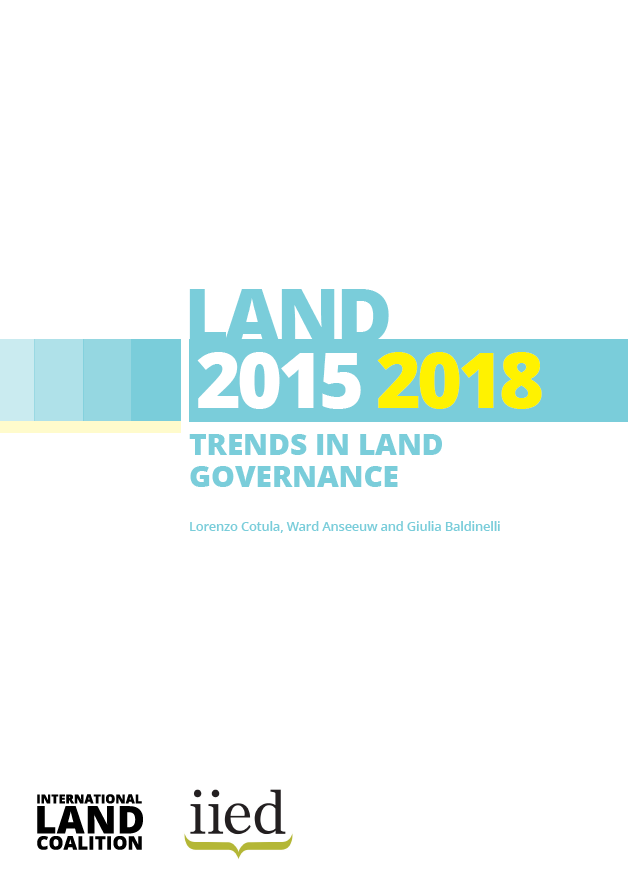LAND: Trends in land governance 2015-2018
This report reviews trends since the GLF in Dakar in May 2015 to the GLF in Bandung in September 2018. It draws on 21 submissions from 18 ILC members and three ILC initiatives, covering a total of 30 countries across different continents. The submissions were made in response to an open call issued by the ILC Secretariat in March 2018. They provided insights about some of the issues that members are grappling with.









